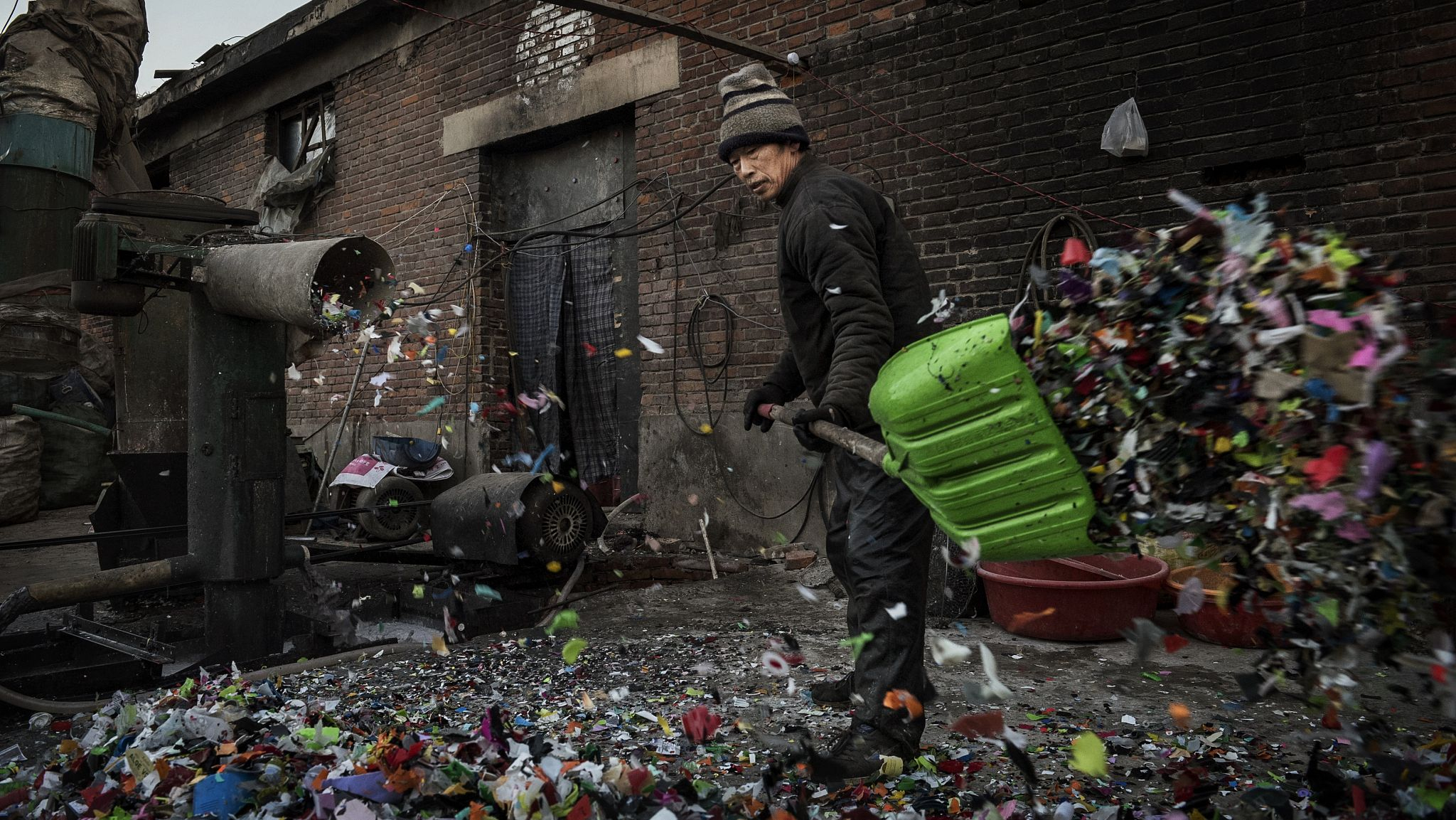
Tech & Sci
16:37, 25-May-2018
China to boost solid waste recycling, curb illegal dumping
CGTN

Beijing outlined new measures on Friday to improve the way it recycles and disposes of solid waste like bricks and concrete and prevent illegal dumping, in a bid to tackle one of the country's biggest pollution problems.
New mechanisms and preferential policies, including tax exemptions, would encourage the “comprehensive utilization” of waste, the Ministry of Industry and Information Technology (MIIT) said in a statement.
It would encourage firms to “standardize, make green and scale up” the complete recycling of products, including materials used in construction such as cement, bricks, and fire retardants, as well as mine slag and tailings, and porcelain.
Solid waste has emerged as one of China’s biggest environmental priorities as it tries to put an end to illegal dumping and rehabilitate land and water sources contaminated by hazardous chemicals or heavy metals.
According to a study published by the Ministry of Land and Resources in 2015, as many as 100,000 industrial enterprises had closed or relocated since 2001, leaving behind huge amounts of untreated waste. It said as much as eight percent of China’s arable land was contaminated by heavy metals.
China’s ministries have been scrambling to respond to a speech by President Xi Jinping last Saturday, urging the whole country to tackle long-standing environmental problems.
The Ministry of Ecology and Environment (MEE) also published new measures on Tuesday to crack down on the illegal transportation and dumping of solid waste. It called for action to improve China’s ability to recycle and dispose of hazardous materials.
The MEE said in March that there were around 9 million sources of pollution in China, including 7.4 million industrial sources. The number has risen by more than half in just eight years.
China has also banned the import of many types of waste material, with customs authorities now cracking down on illegal smuggling, as it tries to encourage recyclers to tackle rising levels of domestic waste instead.
[Top Image: A Chinese laborer shovels plastic after it is shredded into small pieces before being recycled in the Dongxiaokou Village in Beijing's suburb. /VCG Photo]
Source(s): Reuters

SITEMAP
Copyright © 2018 CGTN. Beijing ICP prepared NO.16065310-3
Copyright © 2018 CGTN. Beijing ICP prepared NO.16065310-3